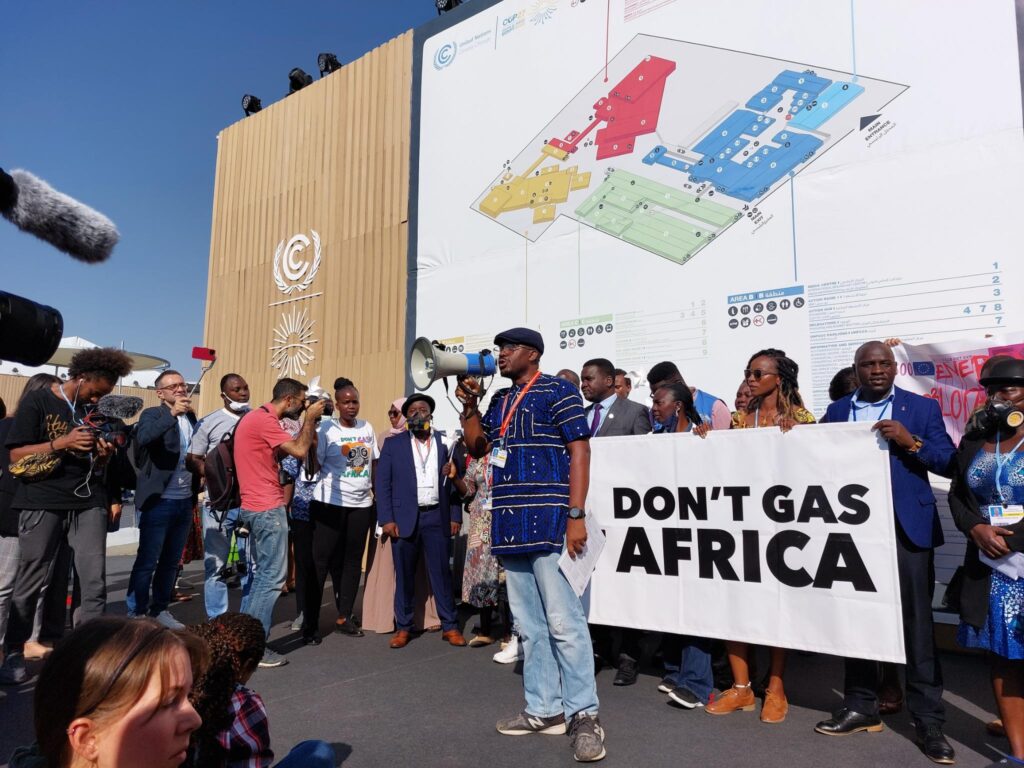In Uganda and Tanzania, oil companies are rushing to construct a new 1,400- kilometer heated oil pipeline — the world’s longest — through Eastern Africa.
The proposed East Africa Crude Oil Pipeline (EACOP) has already harmed local populations through physical and economic displacement. If constructed, it would permanently deprive thousands of families of their lands and livelihoods, jeopardize water sources, and endanger protected habitats from Uganda to Tanzania. It would also generate millions of tons of greenhouse gas emissions.

Together with local partners like the African Institute for Energy Governance (AFIEGO) and the global coalition to #StopEACOP, CIEL is amplifying concerns about the project’s impacts with UN human rights bodies, increasing international attention to human rights violations, environmental damages, and climate threats. This coalition is also pressuring financiers not to bankroll the destructive development. The global campaign has exposed the legal and financial risks of investing in EACOP, prompting over twenty-seven
major banks and twenty-four insurers to rule out support for the project.
Amidst escalating retaliation against environmental and human rights defenders, including intimidation and criminalization, CIEL has provided rapid response communications to raise awareness of breaking developments, alert members of the diplomatic corps, and ensure safety for individuals under attack.
